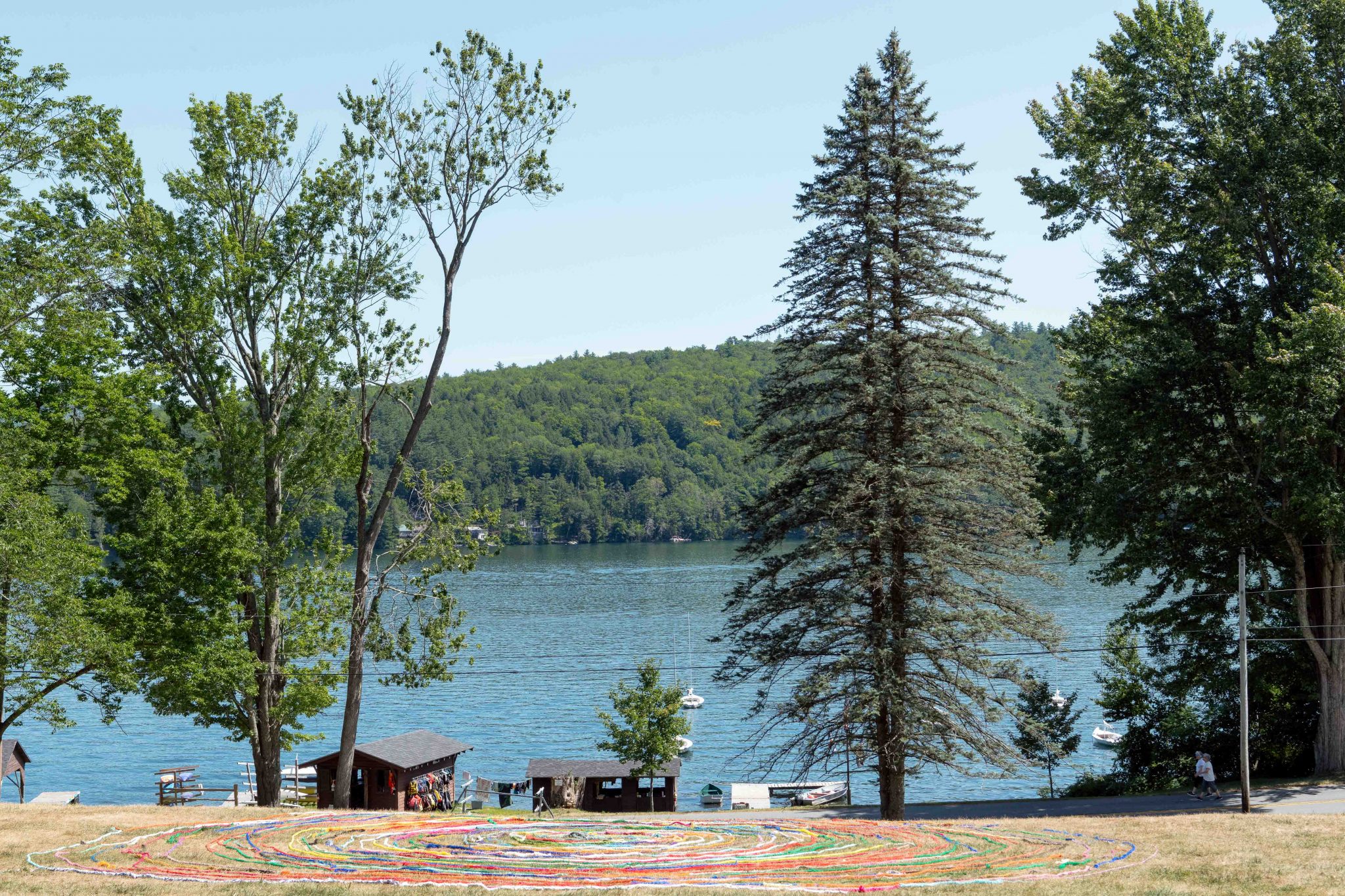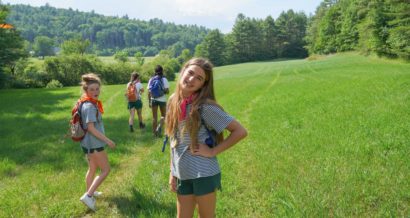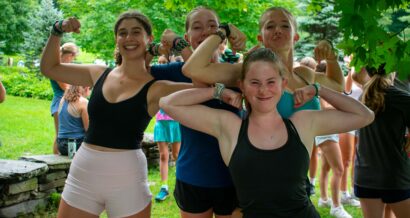 Article
Article
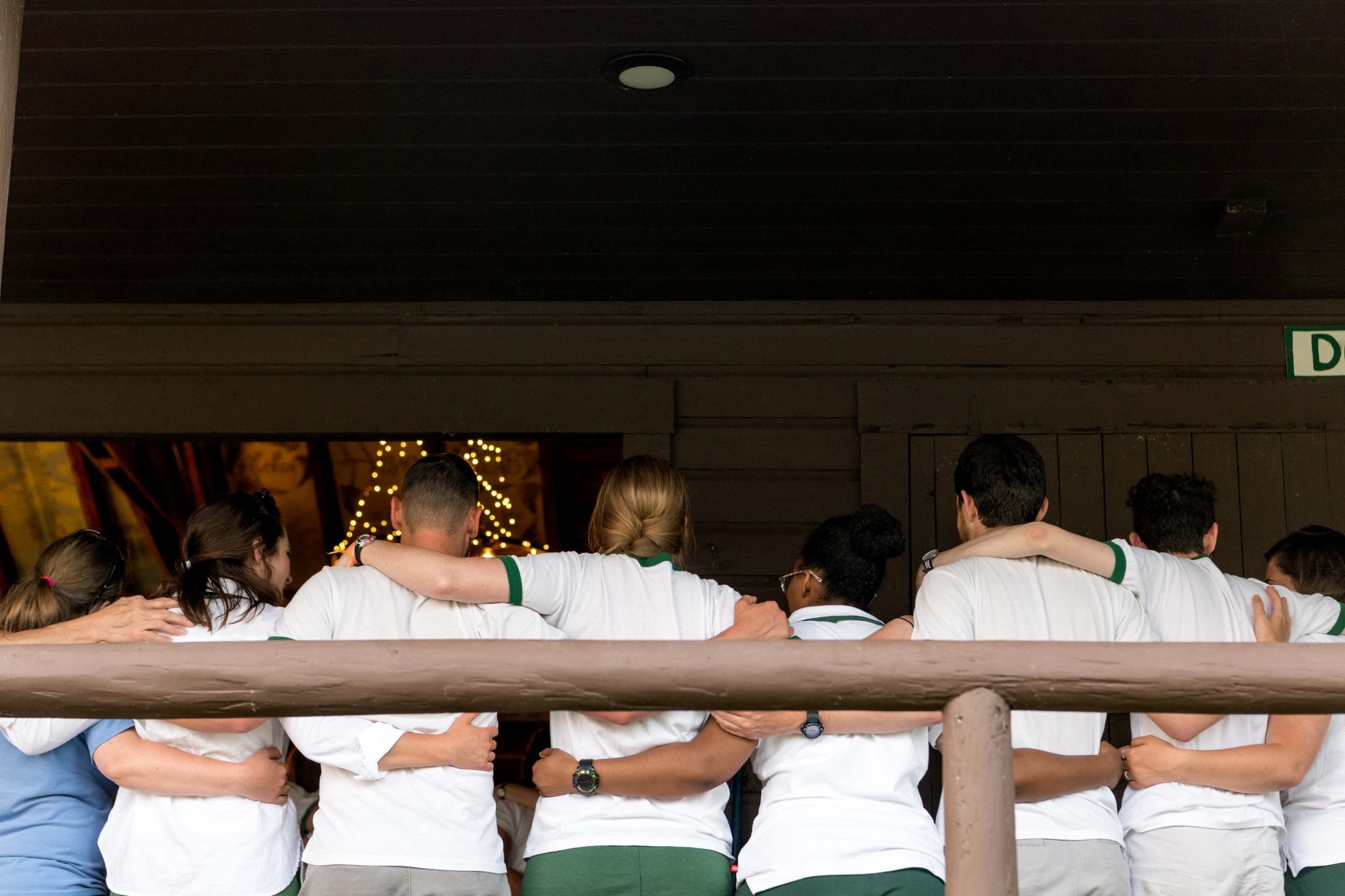
Re-posted from October 2020
It’s been a hard year. That probably feels like the understatement of the decade. Signs of anxiety and isolation abound – not only in the world at large but in our own homes and living rooms. Facing ongoing uncertainty and concerns about our health and safety, we are separated from friends and family, distant from the recreational pursuits that feed our souls, and without the reserves of patience and resilience that give us strength in challenging times.
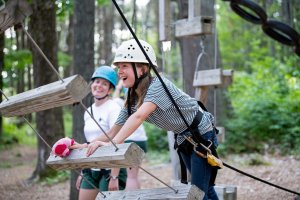 With schools around the globe now forced to rely on platforms like Zoom and Google Classroom, the face-to-face relationships our children need in order to grow and develop feel further away than ever before. We live in a noisy, split-screen world where it can be a struggle to connect in any meaningful way – not just to others, but to ourselves. Investing in our children should be a simple call to action, but what can we do and where should we turn?
With schools around the globe now forced to rely on platforms like Zoom and Google Classroom, the face-to-face relationships our children need in order to grow and develop feel further away than ever before. We live in a noisy, split-screen world where it can be a struggle to connect in any meaningful way – not just to others, but to ourselves. Investing in our children should be a simple call to action, but what can we do and where should we turn?
Even before the Covid-19 pandemic, plenty of research had been published detailing how advances in technology had taken a toll on our psychological development and emotional resilience, emphasizing the risks for children and adolescents in particular. Most young people have a social media presence on multiple platforms, engaging in apps that appear to foster connection while simultaneously reinforcing the need for external validation. At the end of a year like no other, our children remain isolated in ways we could not have anticipated.
The term biophilia was introduced by Erich Fromm in the 1960s, and popularized by Edward O. Wilson in his book Biophilia (1984). The biophilia hypothesis describes “the connections that human beings subconsciously seek with the rest of life;” basically, human beings are hard-wired to want to live in relationship with others and with the world around them. If that observation feels like common sense, it probably is.
At the Alohas, we focus on simplicity. Our belief in the importance of cultivating relationships and grounding ourselves in the beauty of nature is a cornerstone of the experiences we create. 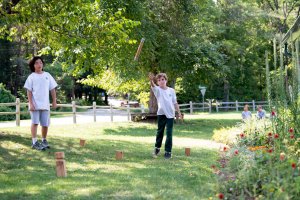 Camp is a community devoid of some of the fancier trappings of the modern world, where we live in rustic tents and cabins; say goodbye to phones and screens; wear simple, comfortable uniforms; and count canoe paddles and Frisbees as some of our more luxurious items. Without the buzzing distractions of the outside world, we devote our time and energy to those around us, becoming important people in one another’s lives. We know that connecting with people—offering ourselves in service and friendship to other members of the community—is what gives an activity meaning. By living simply and intentionally, we begin to better understand the complexity within ourselves.
Camp is a community devoid of some of the fancier trappings of the modern world, where we live in rustic tents and cabins; say goodbye to phones and screens; wear simple, comfortable uniforms; and count canoe paddles and Frisbees as some of our more luxurious items. Without the buzzing distractions of the outside world, we devote our time and energy to those around us, becoming important people in one another’s lives. We know that connecting with people—offering ourselves in service and friendship to other members of the community—is what gives an activity meaning. By living simply and intentionally, we begin to better understand the complexity within ourselves.
Freedom from technology gives our brains the opportunity to pause amidst all of the chaos. In quiet times, we untangle and sort through observations and experiences, consider alternate interpretations, and create meaning. There are many reflective times purposely built into our schedule. These experiences – devoted as much to our inner spirits and mental health as to our outward demeanor and community wellbeing – help us develop a reflective mindfulness that fosters resilience and nurtures meaningful connections with others..
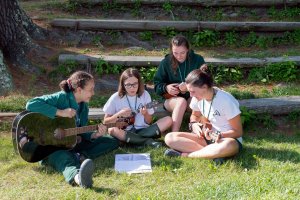 Our relationships thrive through authenticity and fun. We know developing the skills to build and maintain close, vulnerable relationships requires an attentive network of support. We nurture relationships with intention and mindfulness, and we know that no joy in life is so powerful as the feeling of genuine connectedness to others.
Our relationships thrive through authenticity and fun. We know developing the skills to build and maintain close, vulnerable relationships requires an attentive network of support. We nurture relationships with intention and mindfulness, and we know that no joy in life is so powerful as the feeling of genuine connectedness to others.
The majesty of the natural world helps us feel that we are a part of something greater than ourselves. We surround ourselves with the inescapable beauty of the Vermont landscape and we teach children to stop and notice the sights and sounds around them. Immersed in the natural world, campers can rely on us to give them the confidence to make friends and the support to practice habits of authentic friendship. Camp bolsters a child’s mental health, boosts self-confidence, and nurtures social and emotional habits that lead both to independence and interdependence.
It’s been a hard year for all of us. When we are attached to our screens and separated from friends and family, we become isolated from ourselves and others. And…when we unplug and live simply; when we learn and grow in an attentive community; when we forge relationships based in mutual respect and shared experiences, we find our humanity once again. Kids need camp more than ever.
Visit https://alohafoundation.org/camps/ to learn more about Aloha Foundation programs or call and speak with a Director at 802-333-3400.
